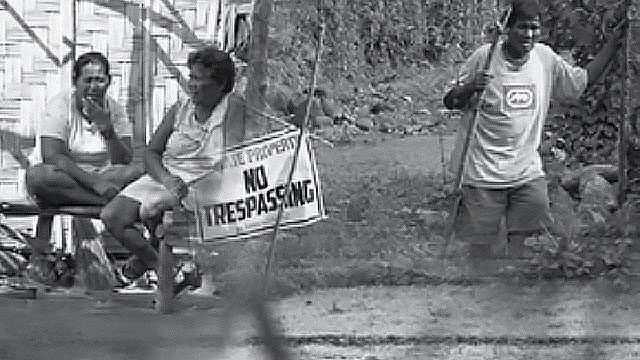SUMMARY
This is AI generated summarization, which may have errors. For context, always refer to the full article.
 The think tank Focus on the Global South released its policy review which tackled one of the most hotly debated themes in the Philippines until today – land grabbing.
The think tank Focus on the Global South released its policy review which tackled one of the most hotly debated themes in the Philippines until today – land grabbing.
The Focus Policy Review has just issued a special double edition of “Understanding Land Grabbing, Land Rights in the 21st Century” intended to guide farmers, land rights advocates and the public in understanding how and why land grabbing persisted all these years in Philippine society.
As the lead article underscores, “land grabbing… [has] almost always been framed within the themes of economic investment, human rights, and governance. Underpinning these themes is the issue of power…” because land grabbing is a political issue with economic goals. We need to know the basics about land grabbing—the who, what, where, and how—in order to grasp the complexities of the issue.
The paper highlighted that the issues and problems associated with land have become more multi-layered in the 21st century.
In the Philippine setting, in particular, a number of “pro-poor” land laws were enacted after the Marcos dictatorship. The enactment of laws were outcomes from the struggles and assertions of social and mass movements in the country under the democratic set-up.

Policy analysts that contributed to the paper pointed out the strong social justice component of the 1987 Constitution, which acknowledged the rights of farmers and peasants to land, of fisherfolk to traditional fishing ground, and of indigenous peoples (IPs) to ancestral lands.
In overview, it further discussed the legal instrument which could have provided the needed substance of the Constitution’s social justice component – the passage of the Comprehensive Agrarian Reform Program (CARP). It highlighted that CARP should have helped fulfill the Filipino farmers’ right to land but it has turned into an arena for struggle, taking 27 years for the law to be fully implemented.
It emphasized the intention of CARP as a law crafted according to the ideals and interests of landless tillers and agrarian reform advocates. However, it ended up plugged with provisions upholding landed elite interests dominating Philippine Congress.
It elaborated that farmers and fishers do not just have to contend with an agrarian reform program that has not been completed almost three decades now. Complicating the situation not only of those who work on lands that have been targeted for agrarian reform coverage but even those who have been issued CLOAs (Certificate of Land Ownership Award) and titles, is the phenomenon called land grabbing.
The CARP’s 27 years of neglect in implementation made it one of the longest running agrarian reform programs under a democratic form of government.
The topics it covered
The policy paper zoomed in on the following topics written by different analysts:
-
Standing on Contentious Grounds: Land Grabbing, Philippine Style
-
When Disasters Clear Land: Narratives of Post-Yolanda Land Contestations
-
Local Residents Fight for Land Rights in Boracay
-
More Investments in Land: Aquino’s Policies
-
Challenging Financial Sector Backing to Land Enclosures
-
Financialization of the Global Food System and its Implications for Local Land Investments
It also presented a section that deals with the “International Human Rights Instruments and Legal Tools for Global Governance of Land, Forests, Fisheries, and Natural Resources.”
About focus on the global south
Focus on the Global South was established in 1995 to challenge neoliberalism, militarism and corporate-driven globalization while strengthening just and equitable alternatives. We work in solidarity with the Global South – the great majority of humanity that is marginalized and dispossessed by globalization – believing that progressive social change and Global South solidarity are imperative if the needs and aspirations of oppressed peoples, particularly in Asia, Latin America and Africa, are to be met.
Focus has the capacity and experience to convene a broad spectrum of progressive social forces around ideas and processes. It possess a history of bringing together diverse actors – from government to social movements to share and deepen analysis of emerging power patterns and new experiences of social transformation as the basis for broad collective mobilization for democratic change.
Focus was at the forefront of the struggles that brought forth the World Social Forum, derailed the World Trade Organization, and prompted alternative visions through its deglobalization paradigm. – Rappler.com
A copy of “Understanding Land Grabbing, Land Rights in the 21st Century” is made available by Focus in its publications at www.focusweb.org.
Add a comment
How does this make you feel?
There are no comments yet. Add your comment to start the conversation.